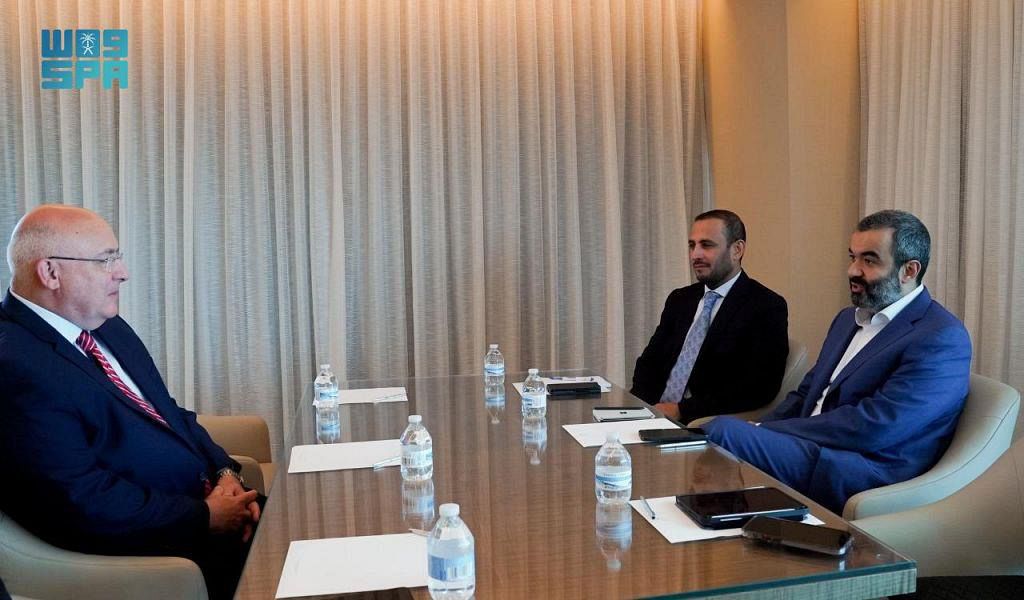
As the Saudi space strategy approaches its launch, expectations for investment in the space sector are growing, with an industry expert predicting that the anticipated budget may be comparable to major space economies.
Moreover, Riyadh is expected to lead the way in creating a competitive and regulatory environment with an innovative approach driven by the public sector, which will support the growth of the regional ecosystem.
Growth Predictions
Phil Malem, CEO of Serco Middle East, estimated the global space industry to be worth more than $400 billion, with expectations of it growing to over a trillion dollars by 2040.
Investments should support the entire value chain of the space ecosystem, from launch to satellite manufacturing within the country, operations, ground segment, and end data services, Malem emphasized.
Speaking to Asharq Al-Awsat, Malem stated that creating the full value chain for the space ecosystem will maximize all relevant industry sectors, such as space exploration, robotics, space science, Earth observation, Satcom, and space sustainability.
Saudi Leadership
According to Malem, Saudi Arabia’s ambitious plans for the country and the region will position it as a global player with a significant impact on space sustainability, leading the Middle East region in this field.
Malem expected that both public and private investments would back the formation of international partnerships in the region and create a local ecosystem. This includes the Saudi Space Accelerator Program, which was introduced by the Saudi Space Commission in 2023.
The program aims to aid startups and entrepreneurs in developing innovative space solutions within the Kingdom while simplifying knowledge transfer, technology, and training.
Malem stressed the importance of strengthening top training programs for operational services through various global space services for professionals in multiple locations, agencies, and public space institutions, such as engineers, operators, and analysts.
This is necessary to enhance the entire space value chain from satellite design and spacecraft operations to data processing and management, explained Malem.
Economic Diversification
Malem forecasted that Saudi Arabia would experience exponential growth in the space sector as part of its economic diversification plans in the region.
He anticipated that space would be a top priority under the direction of Crown Prince Mohammed bin Salman, who serves as the chairman of the Council of Economic and Development Affairs and leads the Supreme Space Council.
The potential for the space sector to impact all economic sectors through services enabled by space data is significant, highlighted Malem.
Since 2018, the Saudi space sector has made big strides in creating a competitive and accessible environment.
Malem noted efforts had been made to enhance the Kingdom’s strategy and achieve incredible accomplishments in human spaceflight missions, including plans to launch Saudi astronauts this year.
Serious Mobilization
Riyadh has taken significant steps toward the sector, affirmed Malem, adding that Saudi Arabia has filled positions with qualified professionals from the global space industry over the past year.
According to Malem, the Kingdom adopted a policy of attracting the best talent to help shape the space sector’s long-term growth, drive, and sustainability.
Saudi Arabia’s space sector will prioritize both economic expansion and the development of its national workforce, said Malem.
The sector aims to position the Kingdom as a leading country in the field of space, he added, noting that this effort presents significant opportunities for building a skilled and confident local workforce capable of implementing the space program and supporting the revitalization of national visions.
Serco’s Plan
Serco’s action plan includes collaborating with local academic, industrial, and public sector organizations to design, develop, and provide training, revealed Malem.
He added that the aim is to prepare Saudi citizens with the abilities, knowledge, and experience required to tackle long-term growth challenges in the regional space sector.












